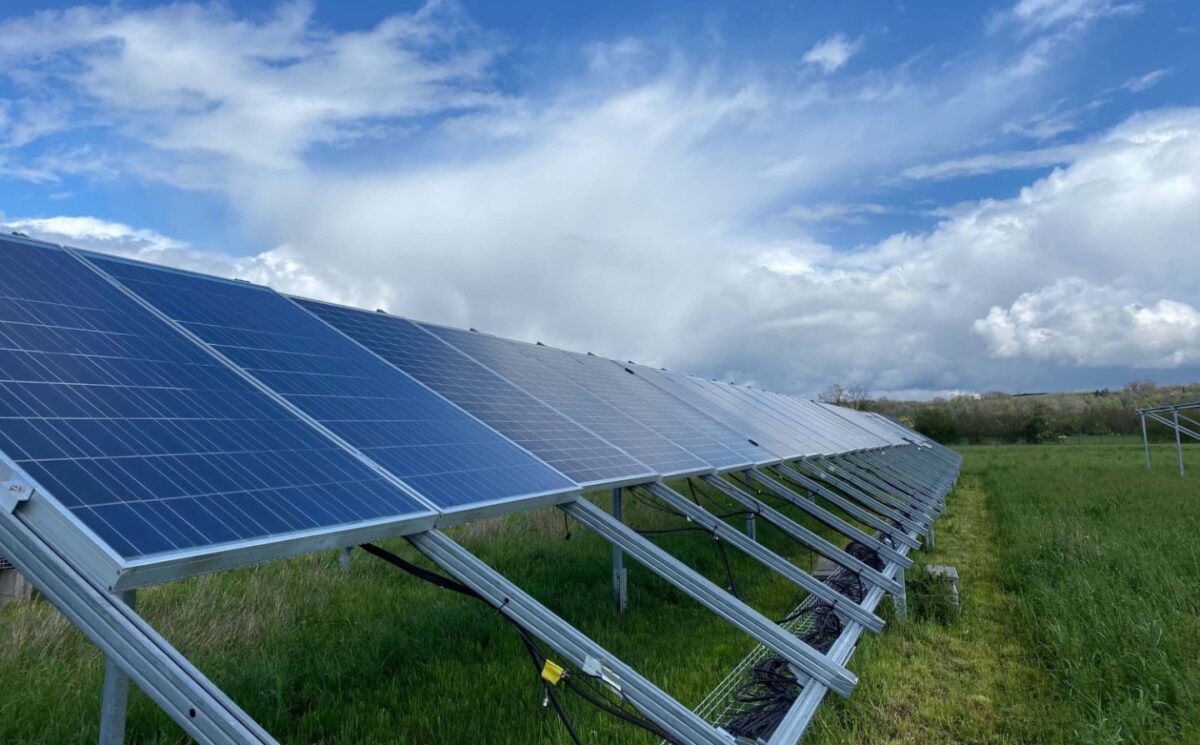At a newly constructed, three-hectare test field in near Freiburg, Germany, researchers at the Fraunhofer Institute for Solar Energy Systems are planning to conduct faster and more accurate testing of PV modules, systems and other solar technologies.
Rigorous tests on PV systems, solar thermal collectors and other solar technologies are usually carried out in indoor laboratory environments, with additional long-term testing under real weather conditions lasting several years. Research at the site, which Fraunhofer ISE officially opened on Friday in the Baden-Württemberg municipality of Merdingen, will combine results from both test approaches.
Fraunhofer ISE says PV modules in particular will be able to be evaluated faster and more accurately by combining and comparing indoor laboratory measurement results with those from the test field.
“The new Outdoor Performance Test Field in Merdingen provides us with the needed space to perform outdoor tests on a wide variety of solar technologies with state-of-the-art measurement technology,” said Andreas Bett, institute director at Fraunhofer ISE. “The test results will enable us to gain important knowledge which can be used to further improve module performance and reliability.”
The new location complements Fraunhofer ISE's test fields on Gran Canaria and in the Negev desert in Israel, where researchers test prototypes and innovative products in various climates under extreme temperature fluctuations or exposure to salt air.
Predicting reliability and degradation of PV modules
“We can now compare results from PV modules exposed to maritime, arid and our temperate Central European climate with measurements from our accredited indoor PV Module and Solar Thermal TestLabs,” said Christian Reise, project manager of the Merdingen test field.
By combining simulations based on solar irradiance data, PV modules can be assessed much faster than was previously the case when using a year’s worth of outdoor measurements, Fraunhofer ISE stated.
In the joint research MiMoRisk project, funded by the economy and climate protection ministry, Fraunhofer ISE is developing procedures to minimize module-related yield risks in future PV power plants and to identify early on technological and design-specific degradation risks.
The analyses from the research project assist the PV industry, especially module manufacturers and project planners of large ground-mounted systems, and also provide valuable insights for insurers on risk assessment, said Simone Steinbach, a member of insurance group Munich RE's Green Tech Solutions team.
Investigating PV noise barriers and agrivoltaic systems
Other projects taking place at the test field include the PVwins project, which measures electricity yield and noise protection performance of different types of PV noise barriers erected on the site. This allows planned projects to be tested on a small scale before actual construction begins.
In addition, construction of various height-adjustable agrivoltaic systems will soon be under way for the the VAckerPower project, which will allow researchers to investigate the suitability of elevated agrivoltaic systems and non-elevated, vertical agrivoltaic systems as well as the suitability of different PV modules for arable farming.
This content is protected by copyright and may not be reused. If you want to cooperate with us and would like to reuse some of our content, please contact: editors@pv-magazine.com.



4 comments
By submitting this form you agree to pv magazine using your data for the purposes of publishing your comment.
Your personal data will only be disclosed or otherwise transmitted to third parties for the purposes of spam filtering or if this is necessary for technical maintenance of the website. Any other transfer to third parties will not take place unless this is justified on the basis of applicable data protection regulations or if pv magazine is legally obliged to do so.
You may revoke this consent at any time with effect for the future, in which case your personal data will be deleted immediately. Otherwise, your data will be deleted if pv magazine has processed your request or the purpose of data storage is fulfilled.
Further information on data privacy can be found in our Data Protection Policy.